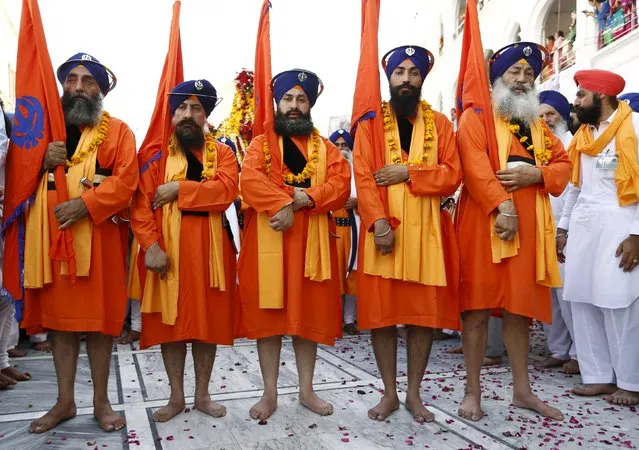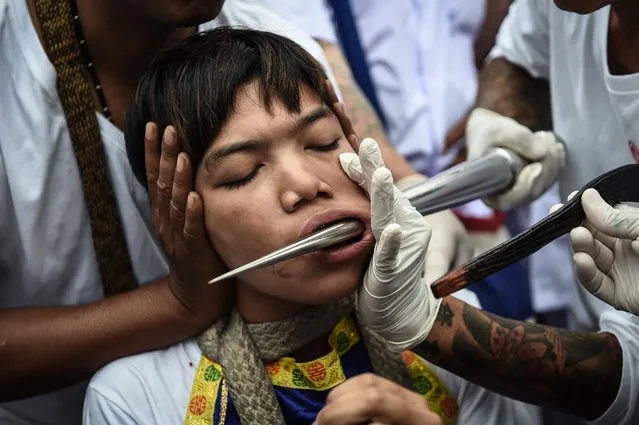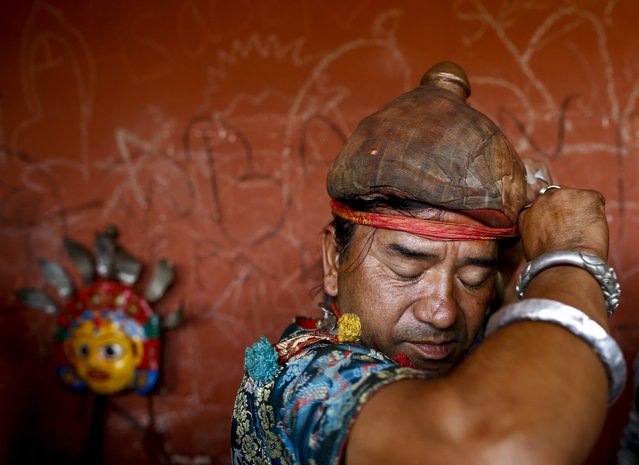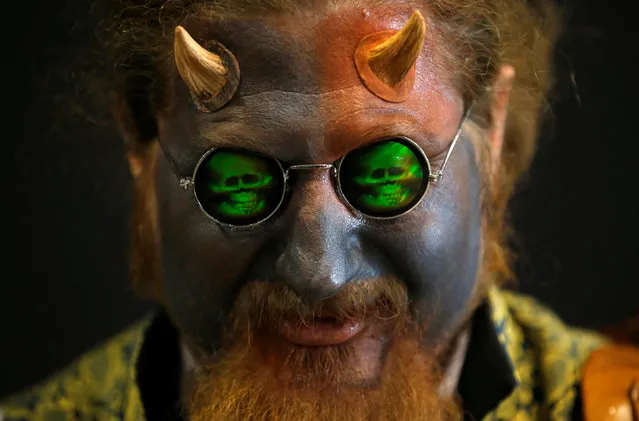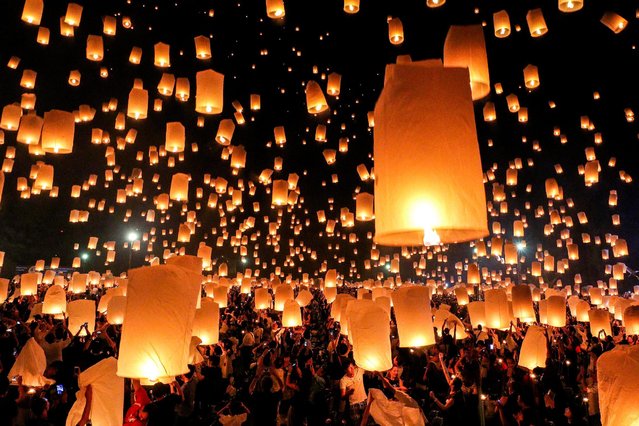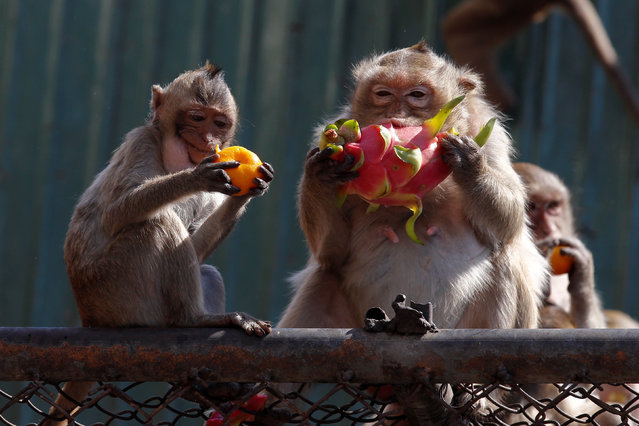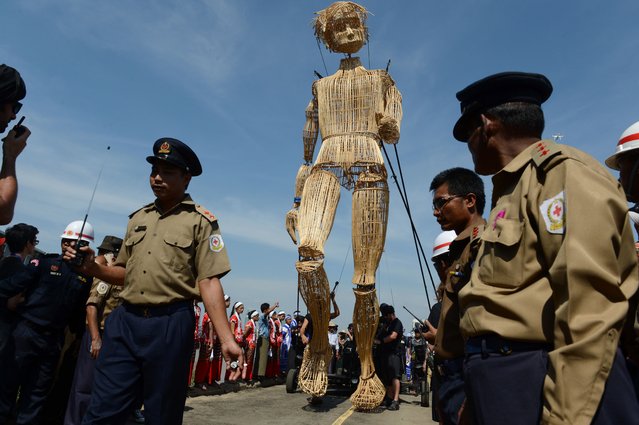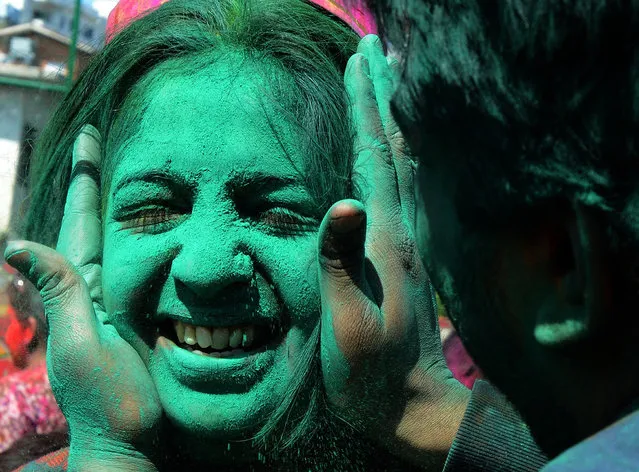
Members of the Nepalese ethnic Madhesi community daub each other's faces with coloured powders during Holi festival celebrations in Kathmandu on March 6, 2015. The Holi festival of colours is a riotous celebration of the coming of spring and falls on the day of the full moon in March every year. AFP PHOTO / PRAKASH MATHEMA (PRAKASH MATHEMA/AFP/Getty Images)
07 Mar 2015 22:35:00,post received
0 comments

